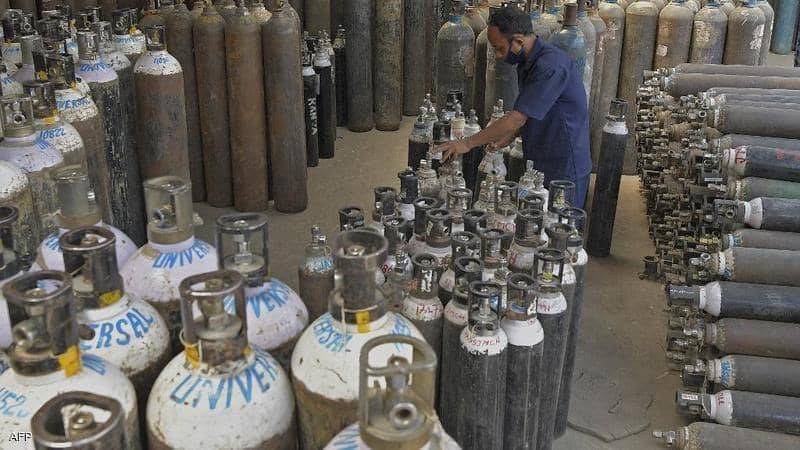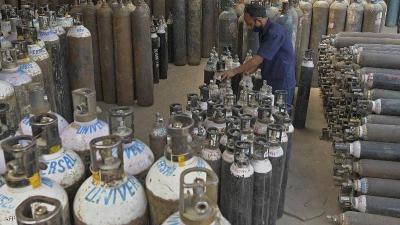On Saturday, India launched a vaccination campaign for all adults, numbering around 600 million, despite a shortage of doses and amidst a surge in COVID-19 cases that led to a record high of over 400,000 infections in 24 hours. India reported 401,993 new cases in the last 24 hours, a global record, according to the Health Minister. In April alone, India, which has a population of 1.3 billion, recorded approximately seven million new cases. On Saturday, around 3,523 deaths were recorded in one day, bringing the total death toll to 211,843. However, several experts believe the actual numbers are much higher due to insufficient testing and inaccurate recording of deaths.
Even before its launch, India’s widespread vaccination program appears compromised. Several states, including Maharashtra and Delhi, which are among the hardest hit, have warned that they do not have enough vaccine supplies, and the extensive rollout is threatened by administrative disputes, confusion over pricing, and technical issues with the government’s vaccine platform.
"So far, about 150 million doses have been administered, which is 11.5% of the population, with 25 million receiving their second dose. Jayanti Vazant, at a crowded vaccination center in Mumbai, stated, 'The queues here are extremely long,' adding that 'people keep fighting.'"
International medical assistance, announced by more than forty countries, began arriving this week in India, where hospitals are facing severe shortages of beds, oxygen, and medicines. Sixteen COVID-19 patients and two nurses died on Saturday in a fire at a hospital in Bharuch, Gujarat, marking another tragic incident in overwhelmed hospitals.
On Saturday, a plane loaded with medical equipment was scheduled to depart from the French airport of Roissy. A U.S. military plane had previously arrived on Friday, containing more than 400 oxygen cylinders, along with other medical supplies and nearly one million rapid testing kits for COVID-19 at Delhi's international airport. Supplies from several countries are expected in the coming days.
The rise in cases in India is fueling the global pandemic, with over 150 million people infected worldwide, including nearly six million in just one week, according to figures compiled by Agence France-Presse. On average, the pandemic causes over 800,000 new infections per day globally, a number that has more than doubled since mid-February.
In Brazil, where the vaccination campaign has not yet started, there were 2,595 new COVID-19 deaths reported on Friday, raising the death toll for April to 82,266, marking a record monthly total for the second consecutive month since the outbreak began, according to the Health Ministry. Brazil, with 212 million inhabitants, counts 403,781 deaths, making it the second most affected country in the world in absolute numbers, after the United States (over 575,000 deaths).
Ecuador, one of the most affected countries in Latin America, recorded a record number of infections in April with over 53,000 new cases. In Argentina, a nighttime curfew was extended for three weeks in Buenos Aires and its surroundings due to the rising number of infections.
As Pope Francis begins a series of prayers on Saturday for the end of the pandemic, Europe and the United States hope to overcome it by summer, with vaccination campaigns intensifying. One hundred million people have been fully vaccinated against COVID-19 in the United States, according to health authorities announcing a "significant milestone."
Disneyland parks in California reopened on Friday, and New York City plans to "fully reopen" by July 1. Several European countries have begun easing restrictions in hopes of reviving their severely impacted economies. Health measures have led to a decline in GDP in the first quarter by 1.7% in Germany, 0.4% in Italy, 0.5% in Spain, and 3.3% in Portugal, which will reopen its borders with Spain on Saturday and enter the fourth and final stage of easing health measures that began in mid-March. Poland will also begin allowing certain sports activities and gradually lifting restrictions by the end of May. Ukraine is similarly reopening shopping centers, restaurants, and gyms ahead of schools reopening on Wednesday.
In contrast, Cape Verde announced new restrictions on bars, restaurants, and sports activities to curb the rising infection numbers in the tourism-dependent archipelago. In Russia, President Vladimir Putin declared a ten-day holiday to combat the pandemic from May 1 to 10. The statistics agency reported that 23,715 people with COVID-19 have died in the country, including 17,457 directly from the illness. However, authorities report a declining mortality rate from COVID-19.
On Friday, the World Health Organization granted emergency use authorization for the Moderna COVID-19 vaccine, raising the total number of COVID-19 vaccines that have received this authorization from the organization to five. This helps countries lacking the ability to evaluate the effectiveness of vaccines themselves to rely on the organization’s assessment, and it allows for inclusion of this vaccine in the portfolio of vaccines provided by the COVAX program for poorer countries.




